#psychology of emotion
Text
I cannot imagine life without feeling every moment and emotion at 100%. Every feeling I have is vivid, intense, and consuming. Both good and bad. Even neutral experiences are fully captivating. Do other people not cry with joy to see a sunset, or a friend doing well? Do others not viscerally ache to see a stranger suffer, or a tree fall? I cannot imagine what it’s like to be apathetic. Even when I feel numb, I am aware that I feel SO numb. I feel the lack.
What is it like to live without being thoroughly enraptured or radiantly calm or devouringly miserable?
I just realized that maybe this isn’t the common experience. I am so often overwhelmed by love, just such fervent, intense, all-powerful adoration— for anything! My husband, my pets, a flower, a dragonfly, the breeze, my breath— and so burdened by injustices that I’ve never even felt directly.
Just?! Like I have a psychology degree, so I have a general idea of the human experience on a universal scale, but it just occurred to me for the first time in a while that I don’t often hear people talk about feeling things so completely.
#emotions#human experience#goblin posting#feelings#is this normal#this might be indicative of an illness bestie#love#grief#awe#mood swings#humanity#psychology#psychology of emotion
41 notes
·
View notes
Text

call me npc, cause i'm not playing! 🧍♂️
#fanart#the amazing digital circus#tadc#pomni#tadc pomni#gummigoo#did not expect to like this episode so much and get crazy emotional during it. oh my god#i'm so full of psychological horror yum!#mims hall of fame
11K notes
·
View notes
Text
As I keep shouting into the void, pathologizers love shifting discussion about material conditions into discussion about emotional states.
I rant approximately once a week about how the brain maturity myth transmuted “Young adults are too poor to move out of their parents’ homes or have children of their own” into “Young adults are too emotionally and neurologically immature to move out of their parents’ homes or have children of their own.”
I’ve also talked about the misuse of “enabling” and “trauma” and “dopamine” .
And this is a pattern – people coin terms and concepts to describe material problems, and pathologization culture shifts them to be about problems in the brain or psyche of the person experiencing them. Now we’re talking about neurochemicals, frontal lobes, and self-esteem instead of talking about wages, wealth distribution, and civil rights. Now we can say that poor, oppressed, and exploited people are suffering from a neurological/emotional defect that makes them not know what’s best for themselves, so they don’t need or deserve rights or money.
Here are some terms that have been so horribly misused by mental health culture that we’ve almost entirely forgotten that they were originally materialist critiques.
Codependency
What it originally referred to: A non-addicted person being overly “helpful” to an addicted partner or relative, often out of financial desperation. For example: Making sure your alcoholic husband gets to work in the morning (even though he’s an adult who should be responsible for himself) because if he loses his job, you’ll lose your home. https://www.nytimes.com/2022/07/08/opinion/codependency-addiction-recovery.html
What it’s been distorted into: Being “clingy,” being “too emotionally needy,” wanting things like affection and quality time from a partner. A way of pathologizing people, especially young women, for wanting things like love and commitment in a romantic relationship.
Compulsory Heterosexuality
What it originally referred to: In the 1980 in essay "Compulsory Heterosexuality and Lesbian Existence," https://www.journals.uchicago.edu/doi/abs/10.1086/493756 Adrienne Rich described compulsory heterosexuality as a set of social conditions that coerce women into heterosexual relationships and prioritize those relationships over relationships between women (both romantic and platonic). She also defines “lesbian” much more broadly than current discourse does, encompassing a wide variety of romantic and platonic relationships between women. While she does suggest that women who identify as heterosexual might be doing so out of unquestioned social norms, this is not the primary point she’s making.
What it’s been distorted into: The patronizing, biphobic idea that lesbians somehow falsely believe themselves to be attracted to men. Part of the overall “Women don’t really know what they want or what’s good for them” theme of contemporary discourse.
Emotional Labor
What it originally referred to: The implicit or explicit requirement that workers (especially women workers, especially workers in female-dominated “pink collar” jobs, especially tipped workers) perform emotional intimacy with customers, coworkers, and bosses above and beyond the actual job being done. Having to smile, be “friendly,” flirt, give the impression of genuine caring, politely accept harassment, etc.
https://weld.la.psu.edu/what-is-emotional-labor/
What it’s been distorted into: Everything under the sun. Everything from housework (which we already had a term for), to tolerating the existence of disabled people, to just caring about friends the way friends do. The original intent of the concept was “It’s unreasonable to expect your waitress to care about your problems, because she’s not really your friend,” not “It’s unreasonable to expect your actual friends to care about your problems unless you pay them, because that’s emotional labor,” and certainly not “Disabled people shouldn’t be allowed to be visibly disabled in public, because witnessing a disabled person is emotional labor.” Anything that causes a person emotional distress, even if that emotional distress is rooted in the distress-haver’s bigotry (Many nominally progressive people who would rightfully reject the bigoted logic of “Seeing gay or interracial couples upsets me, which is emotional labor, so they shouldn’t be allowed to exist in public” fully accept the bigoted logic of “Seeing disabled or poor people upsets me, which is emotional labor, so they shouldn’t be allowed to exist in public”).
Battered Wife Syndrome
What it originally referred to: The all-encompassing trauma and fear of escalating violence experienced by people suffering ongoing domestic abuse, sometimes resulting in the abuse victim using necessary violence in self-defense. Because domestic abuse often escalates, often to murder, this fear is entirely rational and justified. This is the reasonable, justified belief that someone who beats you, stalks you, and threatens to kill you may actually kill you.
What it’s been distorted into: Like so many of these other items, the idea that women (in this case, women who are victims of domestic violence) don’t know what’s best for themselves. I debated including this one, because “syndrome” was a wrongful framing from the beginning – a justified and rational fear of escalating violence in a situation in which escalating violence is occurring is not a “syndrome.” But the original meaning at least partially acknowledged the material conditions of escalating violence.
I’m not saying the original meanings of these terms are ones I necessarily agree with – as a cognitive liberty absolutist, I’m unsurprisingly not that enamored of either second-wave feminism or 1970s addiction discourse. And as much as I dislike what “emotional labor” has become, I accept that “Women are unfairly expected to care about other people’s feelings more than men are” is a true statement.
What I am saying is that all of these terms originally, at least partly, took material conditions into account in their usage. Subsequent usage has entirely stripped the materialist critique and fully replaced it with emotional pathologization, specifically of women. Acknowledgement that women have their choices constrained by poverty, violence, and oppression has been replaced with the idea that women don’t know what’s best for themselves and need to be coercively “helped” for their own good. Acknowledgement that working-class women experience a gender-and-class-specific form of economic exploitation has been rebranded as yet another variation of “Disabled people are burdensome for wanting to exist.”
Over and over, materialist critiques are reframed as emotional or cognitive defects of marginalized people. The next time you hear a superficially sympathetic (but actually pathologizing) argument for “Marginalized people make bad choices because…” consider stopping and asking: “Wait, who are we to assume that this person’s choices are ‘bad’? And if they are, is there something about their material conditions that constrains their options or makes the ‘bad’ choice the best available option?”
#mad pride#neurodiversity#ableism#ageism#youth rights#liberation#disability rights#classism#capitalism#mental health culture#pop psychology#feminism#emotional labor
6K notes
·
View notes
Text
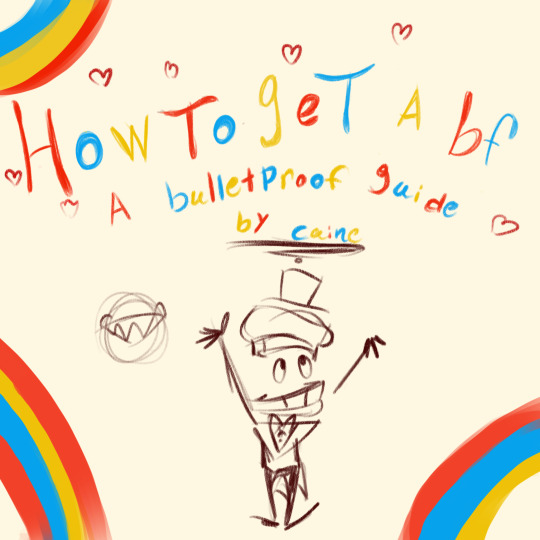
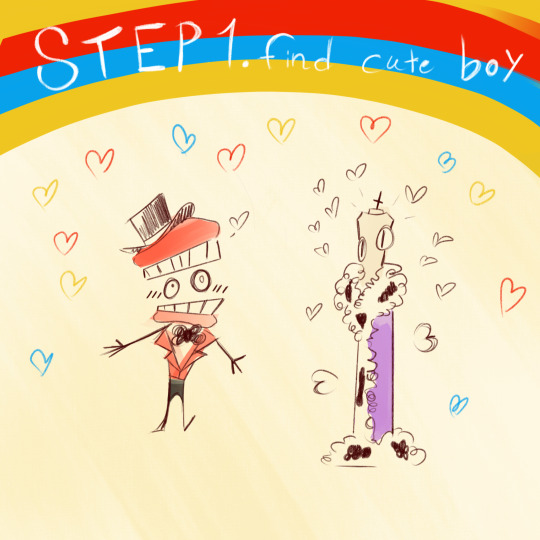

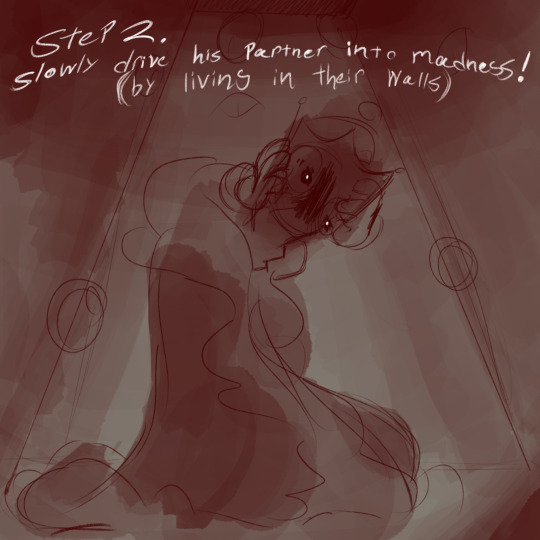
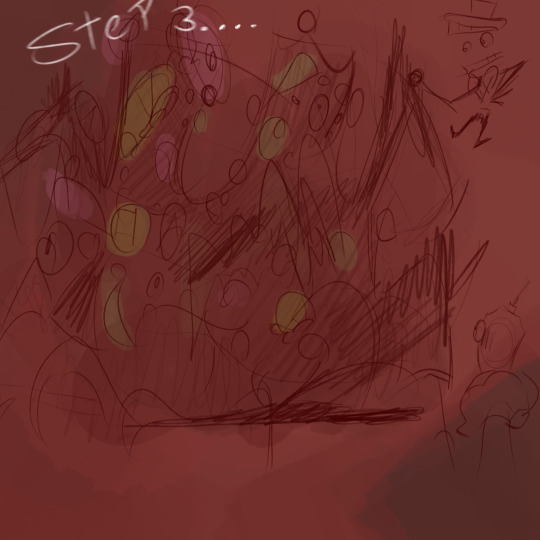

i was not done...
also regarding the last post

WTF!?!?!?!?!?!?!??!?!?!??!?!?!?!?!!?!?
#the amazing digital circus#tadc#tadc caine#tadc kinger#caine#kinger#just stupid#for the record i dont think that caine would be this evil#i think he just doesn't understand alot of “human emotions” and psychology#its for the bit#i love caine
3K notes
·
View notes
Text
merlin in 2009: haha silly, fun family-friendly retelling of arthurian leg-
merlin in 2012: you will choose the one you love over fate and destiny and life itself, you will condemn him by trying to save him, and though you have given your life for his time and time again without seeking any credit, he owes you more life debts than he can count and these debts will be repaid with a thousand lifetimes of grief and loneliness as you wait for the one life you get to share with him again
#sami rambles#WHO TF DOES THAT#pitching the show: twinky sorcerer and repressed king :D#actual show: the intense and unending emotional and psychological torture of one man#IT WAS SUPPOSED TO BE A FAMILY SHOW#merlin#bbc merlin#merlin bbc#merlin x arthur#merthur#arthur pendragon
4K notes
·
View notes
Text
Jason's approach to Nico is actually SO tactful and empathetic. He is super emotionally and strategically intellectual + he is canonically an expert at reading body language because of lupa + he also observes people a lot, so I'm not surprised.
He called Nico out and told him to stop hiding in the shadows and pushing people away, but simultaneously reassured him that he was willing to be nicos friend. He gave nico a blunt reality check on what he's doing, but wasn't rude about it.
He never told anyone nicos secret, not even his girlfriend, and was very patient with him even after he lashed out. And after their friendship evolved, he was STILL very tactful and sought consent before he hugged Nico. He never forced or guilt tripped nico into staying at camp, and respected his decision if he wanted to leave but told him he'd always be welcome in both camps.
He also went to Nico's cabin simply to check on how he was doing and reassure him that he'd always be there for him no matter what (kind of like how he went to piper's room on the argo ii to check on how she was doing even though HE was the one who got stabbed by a sword like 5 mins ago lol-)
And that little scene where Jason got excited after nico said he's staying and just overflowed nico with plans on what they could do (like sing in campfires) but immediately apologized for overwhelming nico so much , while assuring him that they didn't have to do all that if nico didn't want to, and that he's just glad nico was staying.
Ugh jason grace the man you are
#I study psychology a little at school and it struck me how thoughtful jason's approach was to Nico's trauma responses#He didn't treat nico like glass but respected him like he was an individual with opinions#A smart jason should be appreciated more tbh.#Jason handled a traumatized boy with care and earned his trust#He's very emotional smart.#I need a jason in my life. Is he available on Walmart?#is#pjo#pjo fandom#percy jackson#jason grace#pjo hoo#pjo series#pjo hoo toa#nico di angelo#annabeth chase#piper mclean#leo valdez#frank zhang#hazel levesque
377 notes
·
View notes
Text
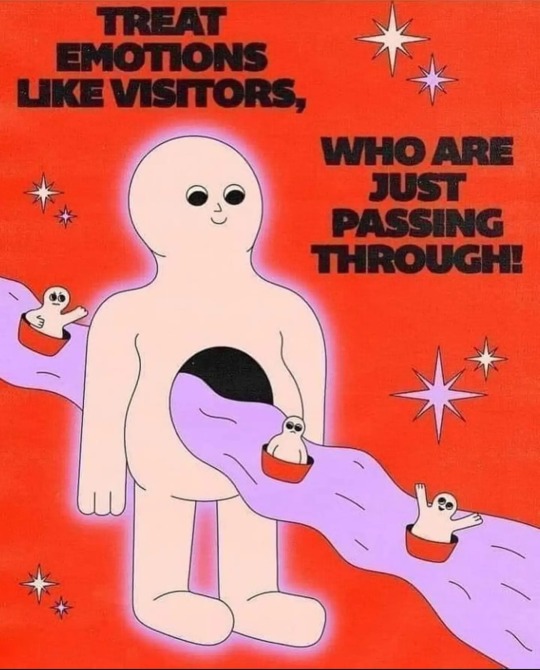
Treat Emotions Like Visitors Who Are Just Passing Through
#perspectives#perspective#emotional intelligence#motivation#motivational#wholesome#mindfulness#mindful#stoic#stoicism#daily life#living#psychology#happiness#pro tip#life tips#life lessons
2K notes
·
View notes
Text
abusers when you're in a ton of pain, depressed, anxious, suicidal, but still obeying them and under their control: Nothing is wrong with you
abusers when you're showing a hint of resistance and finding joy in something that puts you away from their control: You're going to go BAD, who did this to you, who changed you? You are Wrong and Stupid and you will WALK INTO YOUR DEATH, you need to be Stopped Immediately, you need to get Help and be return to normal, you are Delusional and Mad!!
#abusers#control#abuse tactics#controlling behaviour#brainwashing#psychological abuse#emotional abuse
722 notes
·
View notes
Text
The damsel in distress slowly starts getting more and more unstable from the unaddressed trauma of being frequently kidnapped. One day they completely snap and the villains start being found mysteriously murdered with increasing brutality.
#It's common to portray a damsel's kidnapping as no big deal a mild annoyance thats joked about between both heros and villains#Thats if it's not used to set up a romance between the damsel and villain#I'm not complaining but irl kidnapping is the most traumatic thing a person can go though and involves sa 99% of the time#I just wish the damsel in distress trope was taken seriously more often#writers on tumblr#writing#writeblr#creative writing#writing prompt#writing inspiration#damsel in distress#psychological whump#emotional whump#trope deconstruction#villains#damsel to badass#story prompt#story ideas#story inspiration#story inspo#writing inspo#writing ideas
363 notes
·
View notes
Text


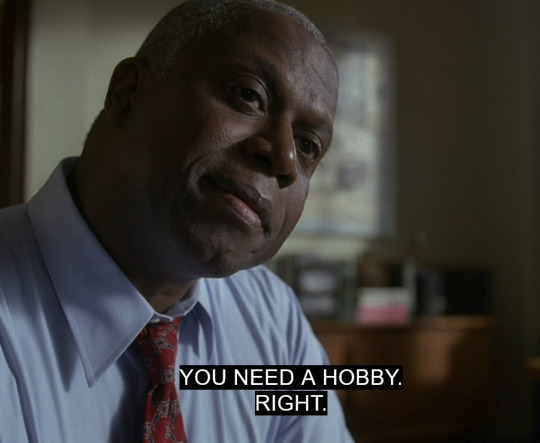


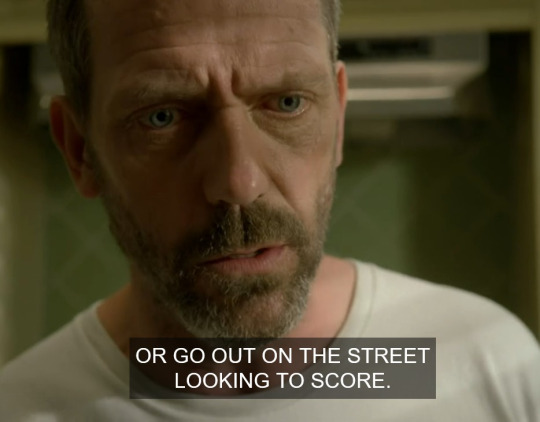
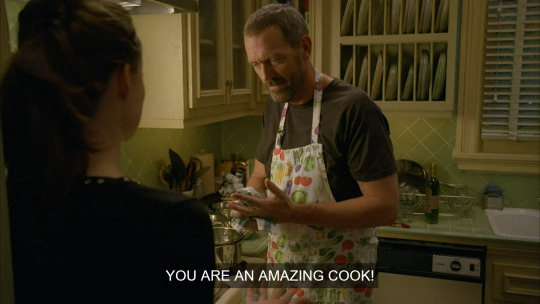
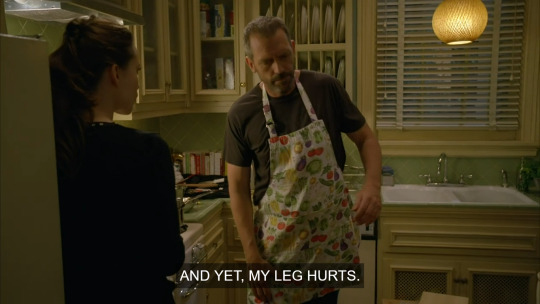
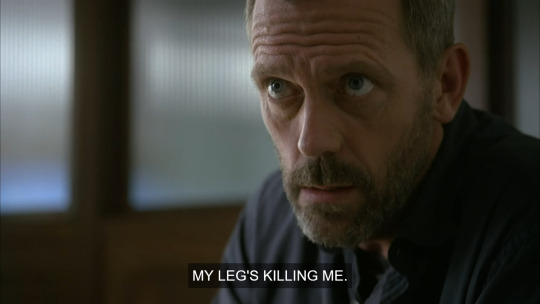
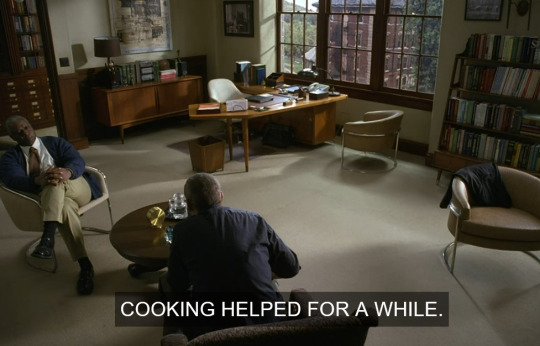
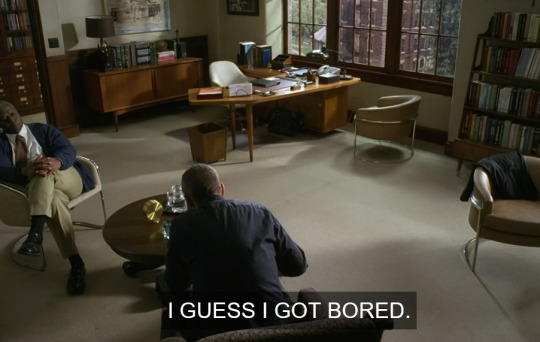

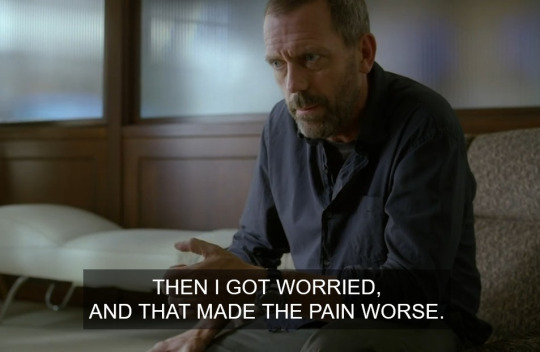
gee i wonder if the issue could be at all related to the fact that the current treatment plan for his chronic pain consists solely of FUCKING IBUPROFEN
#i get that they're trying to make the point that house's pain flares with emotional distress#which is true! he does have psychological problems that need to be addressed!#but also. also. in addition.#there's this other little tiny minor factor worth mentioning which is#there is muscle. MISSING. from house's THIGH#ibuprofen and hobbies are not a suitable treatment plan for this condition#i'm not very knowledgeable about chronic pain but there have to be more options than this or vicodin#yes house has addiction issues#but what's happening here is not about that!!#he literally needs MEDICAL TREATMENT and he's being denied it!#house staying clean from the specific drug he was addicted to AND being on a proper pain management plan#are not mutually fucking exclusive#house md#house season 6#house 6x2#i need a tag for#house's chronic pain#house pain management#op
385 notes
·
View notes
Text
Venting when angry seems sensible. Conventional wisdom suggests expressing anger can help us quell it, like releasing steam from a pressure cooker.
But this common metaphor is misleading, according to a new meta-analytic review. Researchers at Ohio State University analyzed 154 studies on anger, finding little evidence that venting helps. In some cases, it could increase anger.
"I think it's really important to bust the myth that if you're angry you should blow off steam – get it off your chest," says senior author Brad Bushman, a communication scientist. "Venting anger might sound like a good idea, but there's not a shred of scientific evidence to support catharsis theory."
Continue Reading.
225 notes
·
View notes
Text

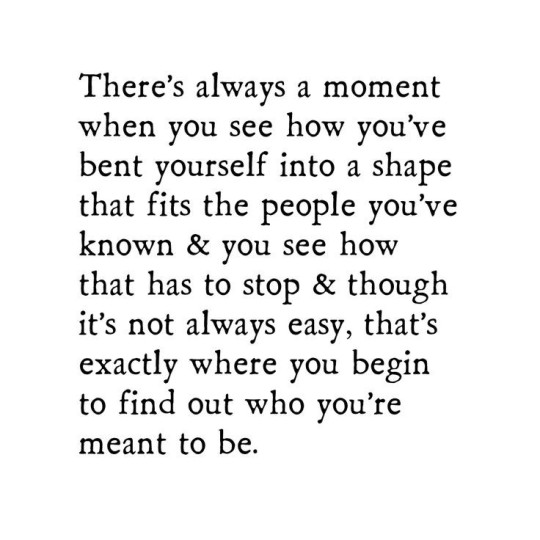
#inner child healing#reparenting#healing from narcissistic abuse#self worth#self respect#boundaries#self esteem#emotional abuse#healing from psychological abuse#inner teen healing
336 notes
·
View notes
Text

Susan Nathiel, Daughters of Madness
238 notes
·
View notes
Text
Whump Prompts 130: Lab Whump Aesthetic
CW: lab whump (obviously), blood, self-harm, psychological/emotional whump, magic whump
The lab rat uniform: loose, drab, hanging on whumpee's frame like it doesn't feel comfortable there
Bloodstained, soiled clothing, the result of experimentation
Whumpee left naked in their cell as their uniform is washed
Whumpee arriving at the lab facility as a new subject and realizing that whumper will be experimenting on them, not with tools and drugs, but with dark magic
Inhuman whumpees losing whatever shreds of humanity they might have had as time and experiments continue and they're treated more and more like animals
Or, conversely, inhuman whumpees that become more human and exhibit more human emotions as they're mistreated
Whumpee forgetting their own name because they're only referred to by a subject number
Disorientation from drugs/experiment aftermath
Whumpee's sleep, the only time they're alone, being disrupted by nightmares about what's been done to them
Or, a whumpee who's never left alone, always watched, always under observation of some kind
Whumpee's skin slowly turning into a scarred, chaotic mess from cuts/syringes/injections, etc.
Whumpee seeing their own distress and pain mirrored in the glimpsed faces of other lab rats in the facility
Whumpee learning to see themself as nothing but a test subject
Bandages, sterile gauze, sterile lights, sterile everything
Whumpee being overwhelmed when they catch a glimpse of life outside the lab when visitors arrive
Waking up after an experiment, seeing bloodied instruments and wondering groggily what terrible thing whumper could have done to them now
Learning to damage their own body to foil whumper's plans
Whumpee becoming desensitized to whumper's drugs and needing higher and higher doses for them to work
No longer recognizing their own body after recovering from whumper's last experiment
Whumper leading lab rat whumpee to a mirror, after intentionally keeping them away, and letting them see how pathetic they've become
Or, whumpee looking in a mirror and realizing that whumper has turned them into a monster
Whumpee deciding that it's too late for them and they might as well embrace what they've become
Feel free to reblog and add on!
#lab whump#experiment whump#whump aesthetic#experimentation#human experimentation#whump prompts#inhuman whumpees#lab rat whumpee#blood#torture#psychological whump#emotional whump#multiple whumpees#nonhuman whumpee#needles#injection#drugging#forced drugging#scars#scarring#whump ideas#whump inspiration
186 notes
·
View notes
Text
youtube
Why Do Our Emotions Matter And What Do They Mean
#thoughtstherapy#thoughts#therapy#mythoughtstherapy#mentalhealth#mentalheathawareness#self love#psychology#quotes#lessonslearned#emotions#Youtube
211 notes
·
View notes
Text
i luv drawing over things and making shit posts
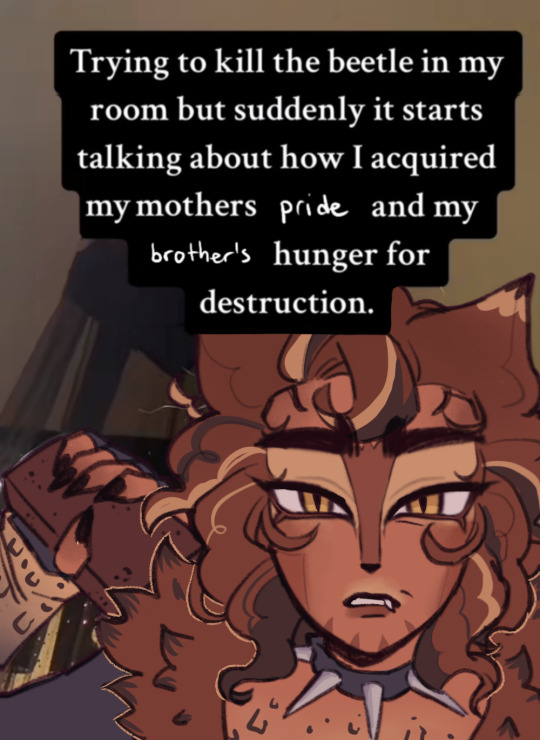
#jennys been teaching the beetle’s psychology btw#theyre good at emotional jabs now!#to the dismay of the handful of cats with issues !#cats the musical#cats musical#the rum tum tugger#rum tum tugger#art
111 notes
·
View notes